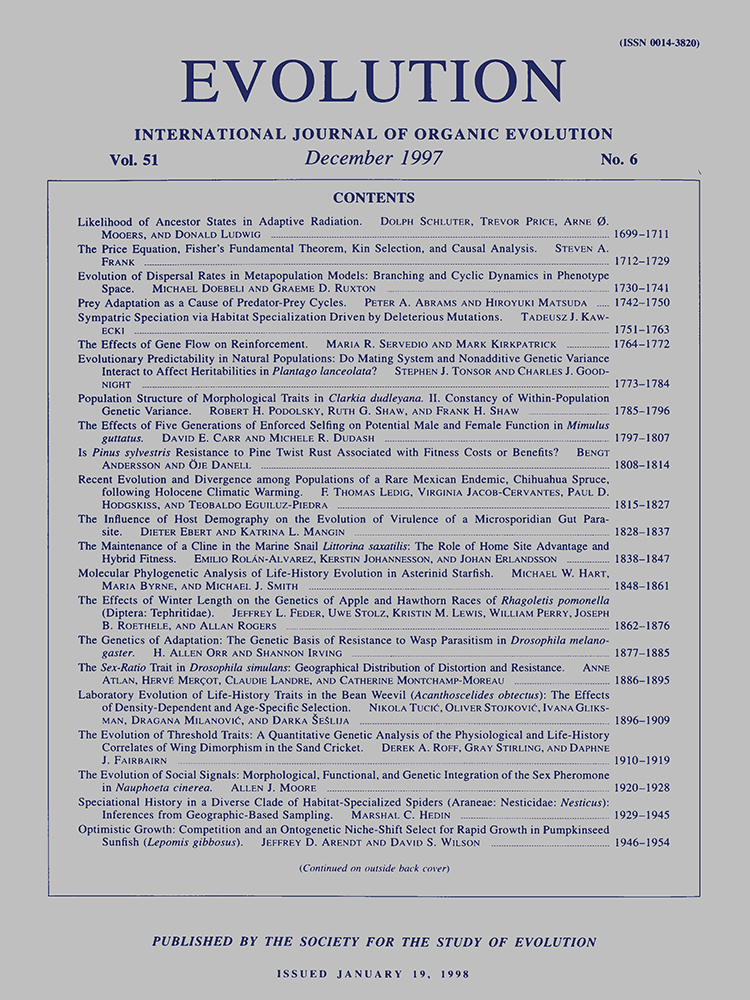KIN-MEDIATED MORPHOGENESIS IN FACULTATIVELY CANNIBALISTIC TADPOLES
Abstract
Inclusive fitness theory predicts that organisms can increase their fitness by helping or not harming relatives, and many animals modify their behavior toward kin in a manner consistent with this prediction. Morphogenesis also may be sensitive to kinship environment, particularly in species where certain individuals facultatively develop structures that can be used against conspecifics as weaponry. We tested this hypothesis by examining whether and how consanguinity affected the probability that a structurally distinctive carnivore phenotype, which is opportunistically cannibalistic, would be produced in plains spadefoot toad tadpoles (Spea bombifrons) and southern spadefoot toad tadpoles (S. multiplicata). For tadpoles of S. multiplicata, individuals were significantly more likely to express the carnivore phenotype in mixed sibship groups than in pure sibship groups. For tadpoles of S. bombifrons, individuals were significantly more likely to express the carnivore phenotype when reared alone than in pure sibship groups. Both outcomes were independent of food availability or sibship specific differences in size or growth rate, and waterborne chemical signals from nonkin were sufficient to trigger expression of the carnivore phenotype. Our results suggest that morphogenesis may be responsive to kinship environment in any species or population that occurs as multiple, environmentally induced forms (polyphenism) that differ in their ability to help or to harm others.




